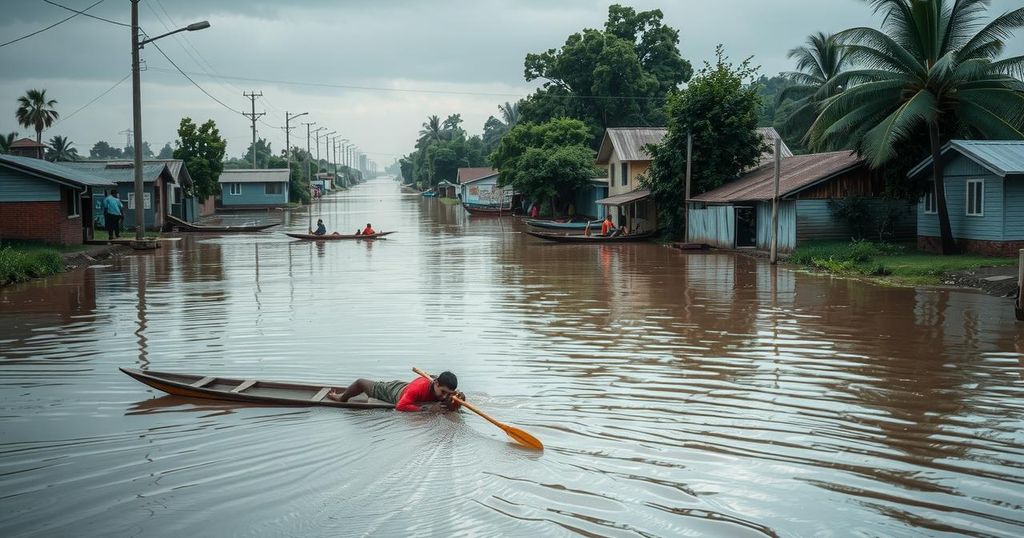Annual Flooding Crisis in South Sudan: Thousands at Risk along the Jonglei Canal

Flooding in South Sudan has escalated to a yearly disaster, forcing thousands to live in makeshift communities along the Jonglei Canal. Villages are being submerged, farmland is lost, and livestock are dying, pushing residents to endure perilous journeys through floodwaters to reach medical care.
As flooding increasingly devastates South Sudan, many residents find themselves in precarious living conditions along the banks of the Jonglei Canal. This scenario has become commonplace, with tens of thousands residing in makeshift communities on the scant high ground available. These seasonal floods, which are a traditional aspect of life for those in pastoral communities surrounding the Sudd, the largest wetland in Africa, have become more severe. The continually expanding swamp has submerged numerous villages, rendered farmland unproductive, and resulted in the loss of livestock. In their struggle to access essential medical care, inhabitants often wade for hours through floodwaters that pose risks from venomous snakes.
The Republic of South Sudan has experienced increasing climate-related challenges, particularly seasonal flooding, which is exacerbated by environmental changes and deforestation. Many communities that rely on agriculture and livestock are particularly vulnerable as rising water levels inundate their lands and homes. The Jonglei Canal, a crucial waterway, has become a lifeline for those seeking higher ground but also highlights the precarious conditions faced by those who reside in close proximity to swampy areas. As a result, access to healthcare and essential services is severely hindered, further stressing an already struggling population.
In summary, the ongoing flooding crisis in South Sudan represents a significant humanitarian emergency. The displacement and challenges faced by the affected communities reflect the broader issues of environmental degradation and climate change. With essential services becoming increasingly difficult to reach, the resilience of the South Sudanese people is put to the test, highlighting the urgent need for continued support and intervention in the region.
Original Source: lufkindailynews.com







